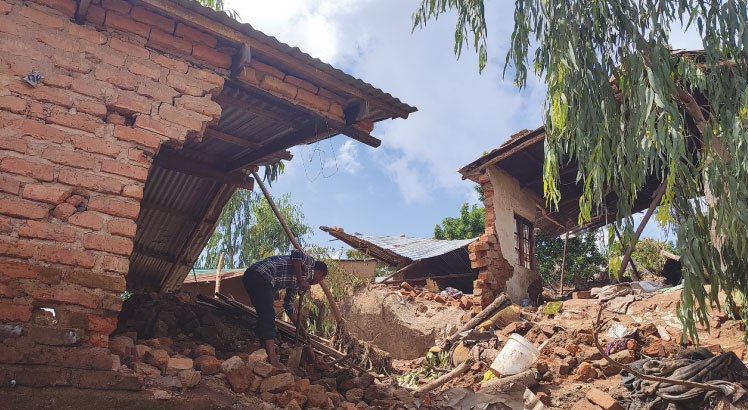‘Poorest nations to be hardest hit by climate change’
 A World Bank report on climate change released on Monday this week says all nations will suffer the effects of a world four degrees Celsius (4C) hotter, but it is the world’s poorest countries that will be hit hardest by food shortages, rising sea levels, cyclones and drought.
A World Bank report on climate change released on Monday this week says all nations will suffer the effects of a world four degrees Celsius (4C) hotter, but it is the world’s poorest countries that will be hit hardest by food shortages, rising sea levels, cyclones and drought.
Under the new World Bank president, Jim Yong Kim, the global development lender has launched a more aggressive stance to integrate climate change into development.
“We will never end poverty if we do not tackle climate change. It is one of the single biggest challenges to social justice today,†Kim told reporters on a conference call on Friday last week in the United States.
The 106-page report, titled Turn Down the Heat: Why a 4C Warmer World Must be Avoided, highlights the devastating impact of a world hotter by 4C by the end of the century, a likely scenario under current policies, it said.
The extreme weather is likely to become the “new normal†if the temperature rises by 4C, according to the World Bank report. This is likely to happen if countries do not comply with pledges they made to reduce greenhouse gas emissions. Even assuming full compliance, the world will warm by more than 3C by 2100.
Extreme heat waves would devastate broad swaths of the earth’s land, from the Middle East to the United States, the report says. The warmest July in the Mediterranean could be nine degrees Celsius hotter than it is today—akin to temperatures in the Libyan Desert.
As the first scientist to head the World Bank, Kim has pointed to “unequivocal†scientific evidence for man-made climate change to urge countries to do more.
Kim said 97 percent of scientists agree on the reality of climate change.
“It is my hope that this report shocks us into action,†Kim, writes in the report.
Scientists are convinced that global warming in the past century is caused by increasing concentrations of greenhouse gases produced by human activities such as the burning of fossil fuels and deforestation.
These findings by the UN’s Intergovernmental Panel on Climate Change were recognised by the national science academies of all major industrialised nations in a joint statement in 2010.
Kim said the World Bank plans to further meld climate change with development in its programmes.
Last year, the bank doubled its funding for countries seeking to adapt to climate change, and now operates $7.2bn in climate investment funds in 48 countries.
The World Bank study comes as almost 200 nations will meet in Doha, Qatar, from 26 November to 7 December to try to extend the Kyoto protocol, the existing plan for curbing greenhouse gas emissions by developed nations that runs to the end of the year. Malawi is also attending.





